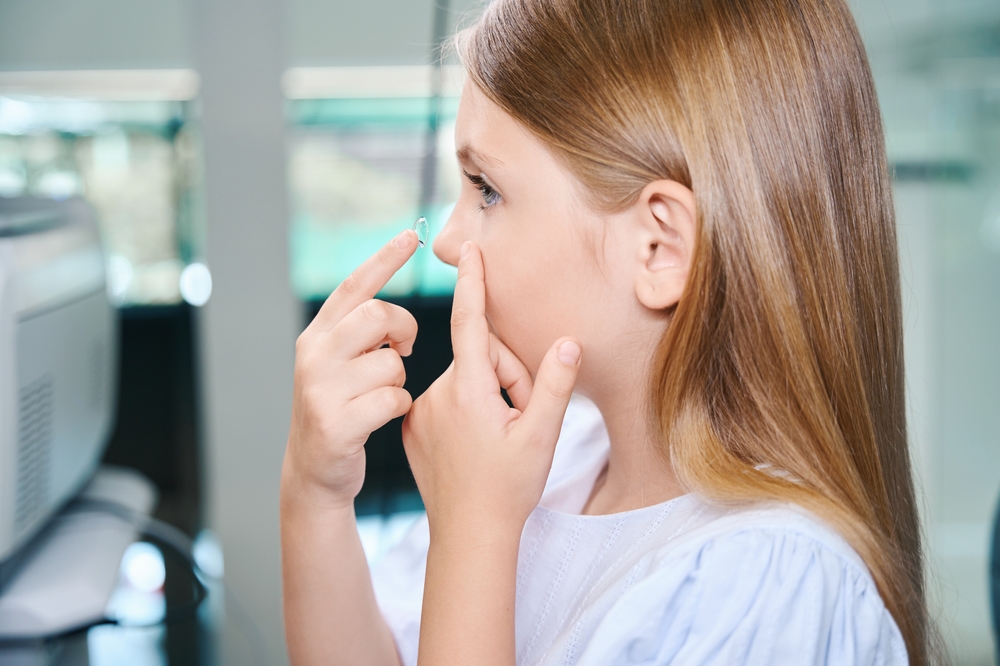
Myopia has become increasingly prevalent among children worldwide, with rates rising significantly in recent decades. Studies show that the prevalence of myopia in children has been steadily increasing, with some regions reporting that up to 80% of school-age children are affected.
This alarming trend is particularly concerning, as myopia in children can lead to a higher risk of developing more severe eye conditions later in life, such as retinal detachment, glaucoma, and cataracts. Addressing myopia management in children is crucial to prevent these potential long-term complications and ensure their visual health.
Causes and Risk Factors of Myopia in Children
The development of myopia in children is influenced by a combination of genetic and environmental factors. Some of the primary causes and risk factors include:
Genetics: Children with parents who are myopic have a higher chance of developing myopia themselves, indicating a strong genetic component.
Near-work activities: Prolonged exposure to close-up activities, such as reading, using digital devices, and playing video games, can contribute to the progression of myopia in children.
Lack of outdoor time: Numerous studies have shown that spending less time outdoors and more time indoors can increase the risk of myopia development in children.
Ethnicity: Certain ethnic groups, such as East Asians, have a higher prevalence of myopia compared to other populations.
Understanding these risk factors is crucial in implementing effective myopia management strategies for children.
Recognizing the Symptoms of Myopia in Children
Identifying the symptoms of myopia in children is essential for early intervention and effective management. Some common signs and symptoms of myopia in children include:
Frequent squinting or difficulty seeing distant objects clearly
Holding books or digital devices very close to their eyes
Frequent eye rubbing or eye strain
Headaches or fatigue after prolonged near-work activities
Difficulty seeing the board or screen at school
Frequent requests to sit closer to the front of the classroom
If you notice any of these symptoms in your child, it is important to schedule an eye examination with an optometrist to assess the degree of myopia and determine the appropriate management approach.
The Importance of Myopia Management in Children
Effective myopia management in children is crucial for several reasons. Uncorrected or unmanaged myopia can lead to more severe eye conditions later in life, such as retinal detachment, glaucoma, and cataracts, which can result in permanent vision loss.
Children with uncorrected myopia may struggle with activities that require clear distance vision, such as reading the board or participating in sports, which can impact their academic and social development. Successful myopia management can help children maintain clear, comfortable vision, enabling them to engage in a wide range of activities and improving their overall quality of life. By slowing the progression of myopia during childhood, the risk of developing more severe eye conditions in adulthood can be significantly reduced.
Recognizing the importance of myopia management in children is the first step towards ensuring their visual health and well-being.
Effective Myopia Management Techniques
One of the effective myopia management techniques for children is Orthokeratology (Ortho-K), also known as corneal refractive therapy. Ortho-K involves the use of specially designed, rigid gas-permeable contact lenses that are worn overnight. These lenses gently reshape the curvature of the cornea, the clear front part of the eye, to temporarily improve distance vision. Studies have shown that Ortho-K can effectively slow the progression of myopia in children, reducing the risk of developing more severe refractive errors.
Another effective myopia management technique for children is the use of low-dose atropine eye drops. Atropine eye drops are a relatively simple and convenient treatment option, as they can be easily administered at home by parents or caregivers.
Dual focus soft contact lenses are another effective myopia management technique for children. These specialized lenses have a unique design that incorporates both a central clear zone for distance vision and a peripheral zone that provides a slight amount of myopic defocus, which has been shown to slow the progression of myopia. Studies have demonstrated that dual focus soft contact lenses can effectively slow the progression of myopia in children, with some studies reporting a reduction of up to 59% in the rate of myopia progression.
Consulting with Your Optometrist for Myopia Management
Effective myopia management in children requires a collaborative approach between parents and eye doctors. Consulting with an experienced optometrist is crucial for developing a comprehensive myopia management plan tailored to your child's individual needs.
During the consultation, the eye care professional will:
Conduct a comprehensive eye examination to assess the degree of myopia and identify any other underlying eye conditions.
Discuss the available myopia management options, such as Ortho-K, atropine eye drops, and dual focus soft contact lenses, and help you determine the most suitable approach for your child.
Provide guidance on the proper use and maintenance of the chosen myopia management technique, including any necessary follow-up care or adjustments.
Monitor your child's progress and make adjustments to the treatment plan as needed to ensure optimal results.
By working closely with an eye doctor, you can ensure that your child receives the most effective and personalized myopia management, helping to preserve their visual health and well-being.
Get Started with Bright Eyes Optometry Today
Myopia management in children is a critical aspect of maintaining their visual health and well-being. By understanding the prevalence, causes, and symptoms of myopia, and implementing effective management techniques such as Ortho-K, atropine eye drops, and dual focus soft contact lenses, you can help slow the progression of myopia and reduce the risk of developing more severe eye conditions later in life.
At Bright Eyes Optometry, we are dedicated to providing personalized myopia management solutions for children. If your child is struggling with myopia, schedule an appointment with us to learn more about the effective treatment options available. Together, we can help your child achieve clear, comfortable vision and a brighter future. Visit our office in Red Bank, New Jersey, or call (732) 605-0300 to book an appointment today.




